This month IranWire’s correspondent Aida Ghajar returned to the French coast to speak to some of the thousands of asylum seekers currently camped there, six years after the refugee crisis first exploded into public consciousness in Europe. Recently the UK government reached an agreement with Rwanda whereby some of those that arrive “illegally” via the English Channel could be “offshored” to the central African country. Our previous report took in the present situation of travellers the “new Jungle” of Calais, and what they thought about the latest announcement. In this instalment, we talk to Iranian and Afghan refugees in a different, temporary encampment near Calais.
***
“At last, after living in the Jungle for a few weeks, we can take a shower and rest for a fortnight. We smell of smoke and the street. In here, in the clean dining room, they give us three meals a day, our phones are always charged, and we have no worries. There’s internet access, too. Come and talk to some of the guys right here. It’s better for us than staring at the wall or wandering around on our phones.”
The Iranian speaker here arrived in the port city of Calais in northern France three weeks ago. He sends me the address of his temporary camp, about an hour outside of Calais. Lush fields of grass and rapeseed stretch out on both sides of the road on the drive down; it’s as if the city was never there.
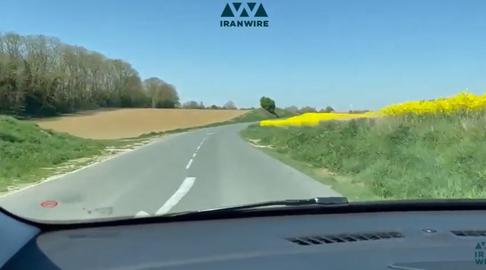
Our host is left Iran two years ago. His last few months before getting to France were spent in Bosnia and Herzegovina and Greece. Now at the embarkation point for Britain, he and other Iranians and Afghans gathered outside the main camp building say they’re not worried about the UK government’s supposed plan to send “illegals” to Rwanda.
“They are not going to send us there,” he asserts. “It’s just talk. We’ve come so far and eventually, we will reach Britain. Fortunately, it’s warm now; the sea is most dangerous in the fall and winter. So they want to close the sea route. But we can still get there by truck or in the air. Human rights organizations have stood against [offshoring] as well.”
Their first plans for when they arrive in Britain? Finding an off-the-books job – asylum seekers in the UK are not allowed to work until their claims are processed – and securing shelter while they avoid being deported back to countries where they were hurt.
Each one has a story worth immortalizing in a novel. But they are united in one thing: “No, Britain is not going to send anybody back. They are definitely not going to send us back to Iran.”
“I Have Never Been at Home”
One Afghan boy among the group was born to undocumented parents in Iran. He and his three brothers couldn’t go to school. At last they got a lawyer who procured, or rather bought, the paperwork for their younger sister so she, at least, could study. Now the whole family is scattered across Europe; some are in Germany, others already in the UK.
The boy wants to be somewhere he can consider his home. “In Iran, we were deprived of most of our rights. And I have never seen Afghanistan with my own eyes. I have a feeling toward it that I can’t explain een to myself. I have never been there. Perhaps I can have a future in Britain instead.”
Most of those travelling in northern France are unwilling to reveal their identities, for obvious reasons. Anything they divulge, they fear, could be used against them during the asylum process in future. Many come from authoritarian states and conflict zones where neither journalists nor the authorities ought to be trusted as a rule.
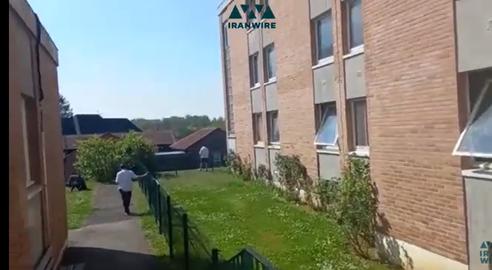
“I’ve deposited £2,500 with a money-changer in the UK for when I get there,” says the Afghan boy. “I was once arrested here at the embarkation point [for Dover]. But they released me after giving me a court order to leave. Somehow I am going to get to Britain. And if they send me to Rwanda I’ll go for Ireland.”
He adds: “The others don’t talk about their asylum cases. They’re afraid somebody will use their stories. Nobody asks anybody else why he is here. In my view, anybody who comes from the Middle East, especially Iran and Afghanistan, has the right to asylum.”
Another Iranian man, who is 31 years old, agrees. He says he was arrested and sentenced to eight years in prison for taking part in the nationwide November 2019 protests. A few weeks ago a friend of his made it across the English Channel, and he hopes to join them soon: “Anybody who comes from Iran has the right to asylum.
“I’m proud to say that I am a monarchist. We will eventually return Reza Pahlavi [the son of the deposed Shah] to Iran. I am ready to sacrifice myself for him. There is no life in Iran. We have no freedom. There are no jobs, either. There’s nothing.”
When I ask him about Rwanda, he laughs, like others have before him. “Do you really believe they’ll send asylum seekers to Rwanda? Of course, all the worst misfortunes in the refugee existence fall on single men. We are the last priority. It’s the women and children and families who get priority. When it’s our turn, they whatever they want to us. But even if they send us to Rwanda, we’ll escape from that camp, too.”
One of the other Iranian asylum seekers took part in the 2009 Green Movement protests, which called for genuine democracy in Iran after Mahmoud Ahmadinejad was dubiously elected for a second term. They, too, say they are “one hundred percent” a monarchist.
“I wrote many of the ‘Reza Shah, blessed be thy soul!’ slogans [graffiti referring to the first Pahlavi king, 1925-1941] that you saw on the walls. But I couldn’t take it anymore. Iran is no place to live. There are no jobs, there’s no freedom, we work and they put the money in their own pockets. I want to live. That’s why I’ve been trying for years to get to Britain. It’s a good place and perhaps they value human beings over there.”
The on-paper agreement between the British and Rwandan governments has not changed anyone’s resolve, not here at least. Many are instead overflowing with anger about the circumstances that brought them here. Despite their determination, though, they say other people have left the camp, and either asked France for asylum or returned to the previous country they passed through. “There were many who came with a visa,” one tells us. “Either their visas expired or they returned to Iran after they heard the Rwanda news.”
Grassroots Efforts to Support Refugees
Since last year several refugee rights organizations working in northern France, some with head offices in Britain, have been engaged in providing refugees with new temporary camps and basic amenities around Calais. They have created informative PDF files in various languages and provided asylum seekers with a telephone number to guide them.
I call the number of Utopia 56 organization and asked for direction as though I, too, were a newly-arrived asylum seeker. This organization takes care of around 200 people per day, providing them with food, vocational classes and shelter. Another called Techfugees offers similar types of aid.
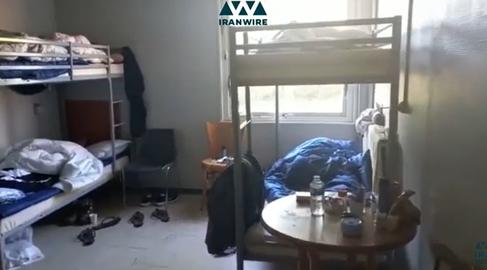
A few minutes after placing the call I receive the relevant file in Persian (see below) to my phone. It lists places where refugees can take a bath, charge their phone, get a meal and drinking water, and request other services.
The latest updates are available through a link on the PDF. The files are also available on Google Drive in various languages. The first page includes warnings: for example, that asylum seekers should keep their valuables such as their phone and money on their person, and that at least every two days police in Calais are likely to raid and trash the camps.
Another organization active in the area is Refugee Info Bus, which supports displaced people on the border in Calais by providing information and mobile phones, phone charging and repair services, WiFi and batteries.”
Twice a week, this organization sends buses to pick up refugees from the streets and shelters in wooded areas to the temporary camps. When they arrive they are asked whether they want to apply for French asylum. If they do, they’ll be given help to file their paperwork; others are told that they can stay in the camp for two weeks, after which they’ll have to make their own way as they see fit.
There is a bus stop near the camp from which people can get to the center of nearby Arras city for just one euro. There, they can take the train to Calais, and try to cross the channel again if they want. If they fail, they can return to the camp.
Still another key organization supporting refugees is Care4Calais, a volunteer-run charity working with refugees in the UK, France and Belgium. It distributes food and clothes and provides the travellers with power banks to recharge their phones. This group’s logo is everywhere around Calais.
The relief workers, someone in this camp says, “treat us very well. They give us very good food in the dining room. They care about us. Each room now has four beds and if there are more of us, it’ll be five in the room and one can sleep on the floor. At least we can rest and feel at peace for a little bit.”
Silence falls. Each of the men in turn lights a cigarette and stares into the middle distance. “I still don’t know what to do,” says an Iranian refugee presently. “Should I go or should I stay? I can’t stay, I’m tired. I’m tired of being a vagrant. Isn’t there a place in this wide world where we can live?”
Another sneers: “Cross off our own countries, the Islamic Republic and Taliban. Isn’t France the top country that exports weapons for wars across the world? What does Britain do about us? They’re the same ones who decided to ruin our lives and then they don’t let us in. We have to gamble with our lives, to possibly be given the right to live.”
Dusk begins to settle over the camp, and the occupants make their way back to their rooms. They say there are more Iranians further along the coast: “Go and see the situation in Dunkirk,” one says. “And whenever you write your book, write that we single men are the most helpless among refugees.”
Our next instalment will, accordingly, be sent from Dunkirk.
visit the accountability section
In this section of Iran Wire, you can contact the officials and launch your campaign for various problems




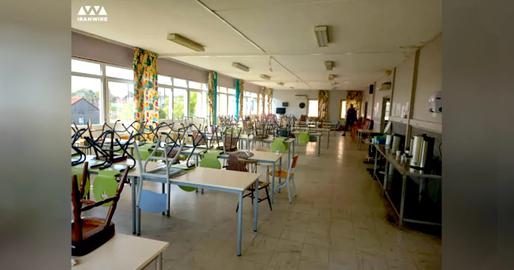

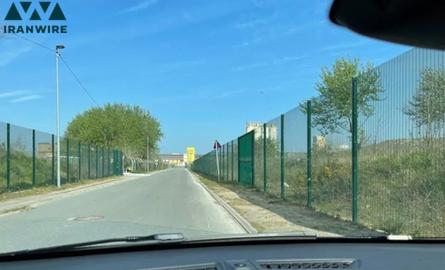

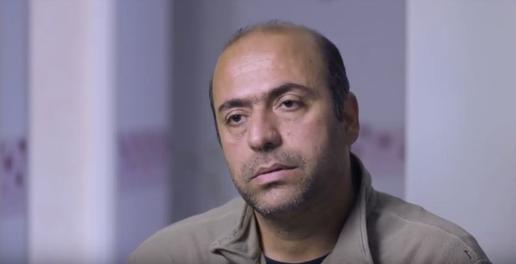
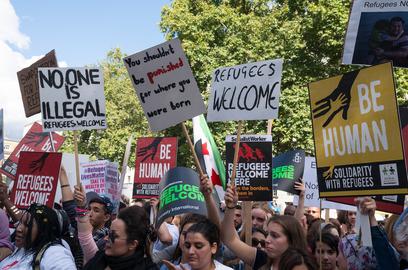
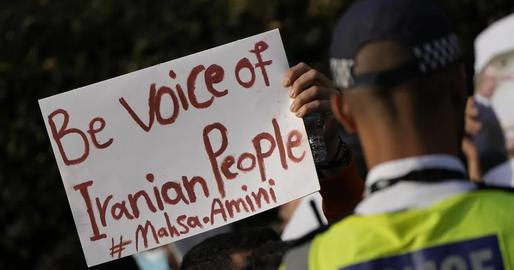
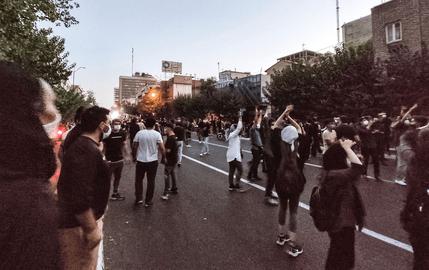


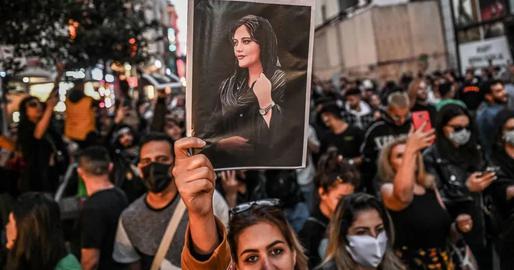
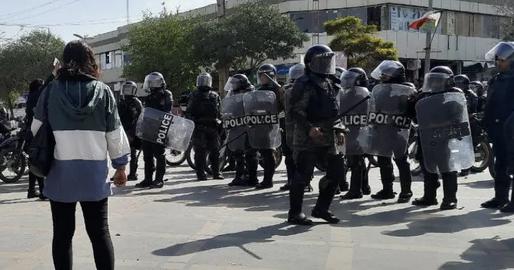
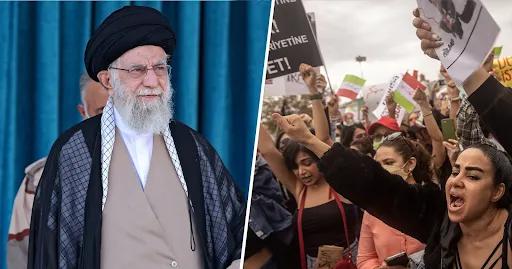
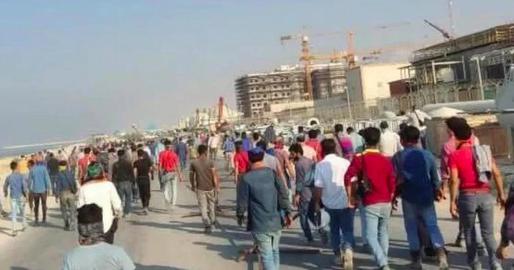
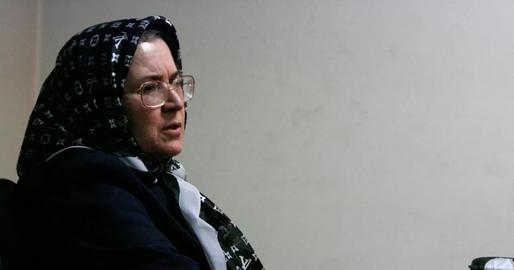
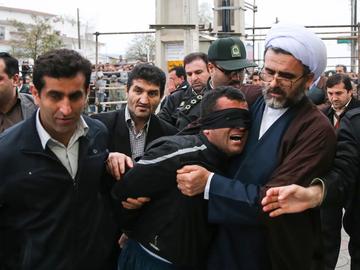
comments